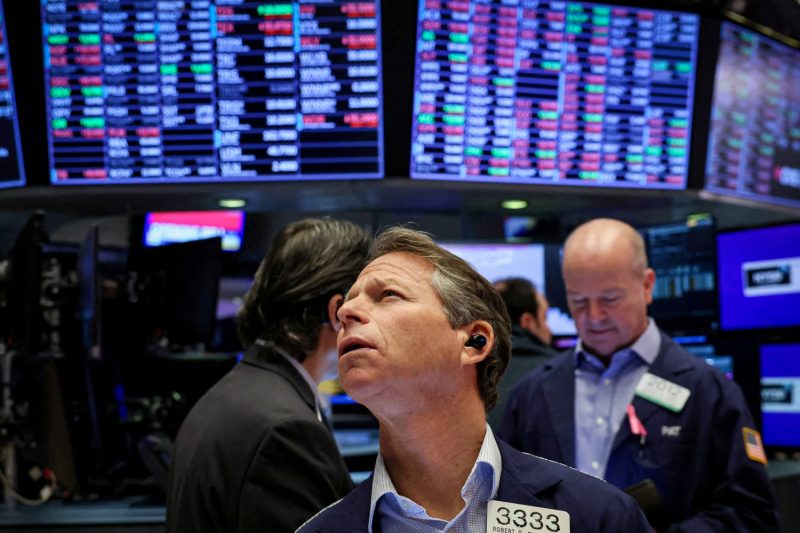Body:
Section 1: Understanding Inflation and Its Impact on the Stock Market
Inflation, a term that we often come across in economic discussions, refers to the general increase in prices of goods and services over time. It is a natural phenomenon in any growing economy and can have both positive and negative effects. One popular concern regarding inflation is its impact on the stock market. However, it is essential not to freak out unnecessarily about the stock market’s reaction to inflation.
Section 2: Historical Perspective on Inflation and Stock Market Performance
To understand the relationship between inflation and the stock market, it is crucial to examine historical data. Research has shown that, in the long run, the stock market has been able to adapt and thrive amid different inflationary environments. For example, during the 1970s when inflation rates were high, the stock market experienced some periods of turbulence but ultimately rebounded.
Section 3: Stock Market as an Inflation Hedge
Although inflation can initially lead to market volatility, it is important to note that the stock market has historically served as an effective hedge against inflation. As prices of goods and services rise, companies that are able to increase their revenues and maintain profitability are likely to see their stock prices rise as well. This phenomenon is mainly attributed to the fact that successful companies can pass on increased costs to consumers, thereby maintaining their profit margins.
Section 4: Diversification and Asset Allocation Strategies
While the stock market has typically performed well in the face of inflation, it is crucial to diversify one’s investment portfolio and adopt appropriate asset allocation strategies. By spreading investments across various asset classes such as bonds, real estate, commodities, and international stocks, investors can mitigate risks associated with inflation. Diversification provides protection even if a particular sector of the economy is adversely affected by inflation.
Section 5: The Role of Central Banks and Monetary Policy
Central banks play a vital role in managing inflation and its impact on the economy. They use monetary policy tools such as interest rate adjustments to control inflation and stimulate economic growth. Therefore, it is crucial to keep an eye on central bank announcements and changes in monetary policy when considering how inflation might impact the stock market.
Section 6: Focus on Long-Term Investing
Investing in the stock market requires a long-term perspective, and this remains valid when considering inflationary pressures. While short-term market fluctuations may arise as a result of inflation concerns, it is important to stay focused on long-term goals and adhere to a well-thought-out investment plan. Trying to time the market or make frequent changes based on short-term inflation fears often leads to lower returns.
Section 7: Seek Professional Advice
For investors who are unsure how to navigate the stock market in the face of inflation, seeking professional advice can provide valuable insights and guidance. Financial advisors can help develop an investment strategy tailored to an individual’s risk tolerance, time horizon, and goals.
Conclusion:
Inflation is a natural occurrence in any growing economy, and while it may initially cause volatility in the stock market, it is not a reason to panic. Historical data shows that the stock market has been able to adapt and thrive amid different inflationary environments. By diversifying investment portfolios, focusing on long-term goals, and seeking professional advice, investors can navigate the stock market confidently and make informed decisions amidst inflationary concerns.
